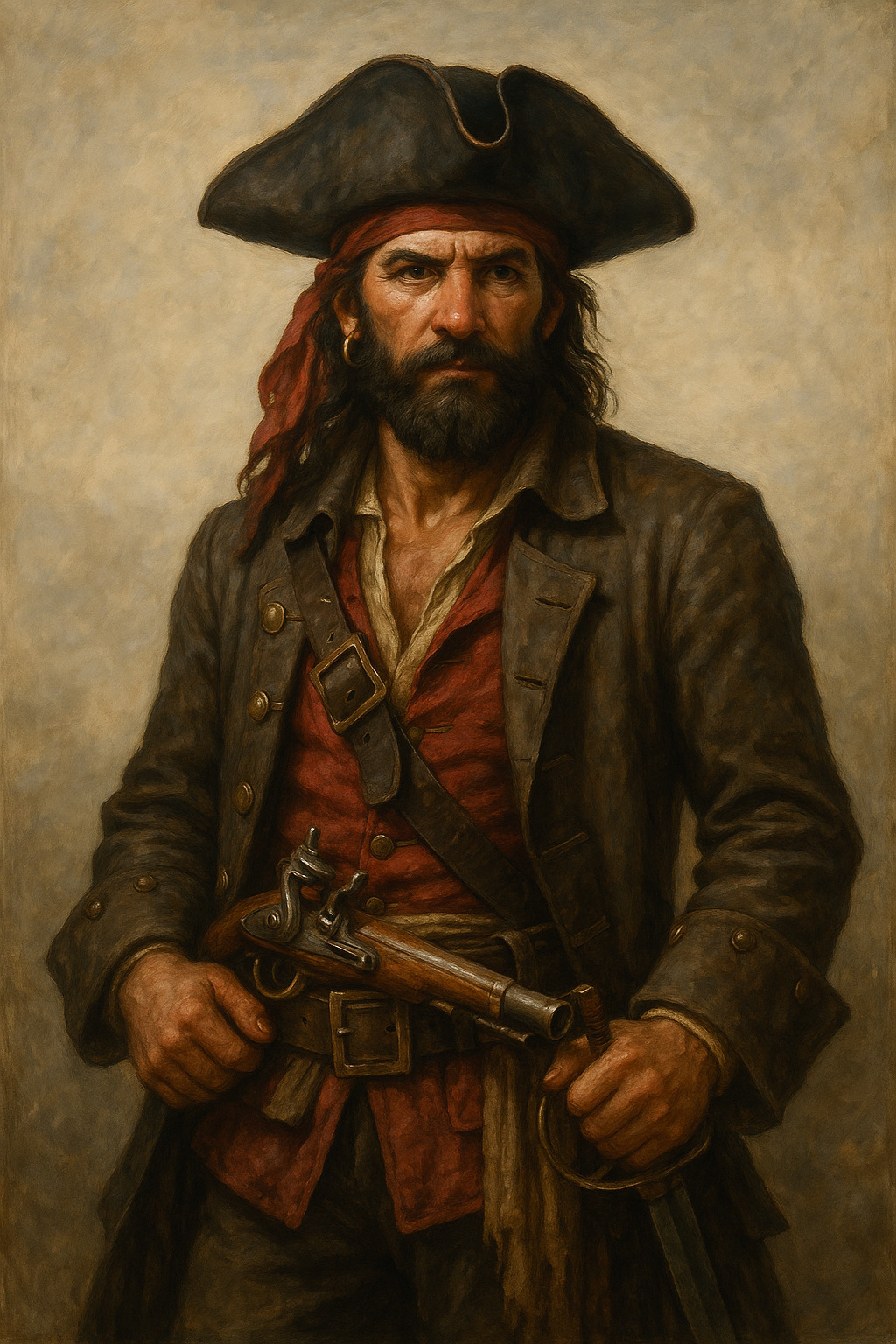🏴☠️ The Ethical Pirate Never Existed: From Bartholomew Roberts to Luffy, Between Myth and Reality
🎭 It All Began with an Illusion
Let’s be honest: we love pirates. But not the real ones — crude, bloodthirsty, often rapists, almost always opportunists. No, we love the pirates who never existed: those who fight tyrants, live by a code of honor, and maybe even save the world.
Where do we find them? In manga, movies, and cartoons. From Captain Harlock, tragic and solitary, to Monkey D. Luffy, naive and idealistic. But this myth has much older — and dirtier — roots than we’d like to admit. Bartholomew Roberts, one of the most notorious pirates of the 18th century, is the perfect example.
⚖️ The Pirate Code: Freedom or Discipline?
Bartholomew Roberts, also known as Black Bart, was one of the most active pirates of the Golden Age of Piracy. He commanded over 400 men, captured hundreds of ships, and terrorized the Atlantic for years. Surprisingly, he had a code. A literal one.
On his ship:
- The captain was elected democratically.
- The loot was shared fairly.
- Gambling was forbidden.
- Fights were punished.
- Lights out by eight.
It almost sounds like the charter of an anarchist commune. But don’t be fooled: order is not the same as goodness.
⚔️ Black Bart: Avenger or Executioner?
Roberts had style, charisma… and no mercy. When a ship surrendered immediately, he spared the crew. But if it resisted, massacre was guaranteed. In one instance, he hanged 52 sailors, guilty only of defending their ship.
And although his code banned abuse aboard, there are records of torture and violence during raids. As for slaves… yes, he freed some. But in other cases, he sold them or left them to die at sea.
Bartholomew Roberts wasn’t an idealist. He was a smart man who knew that rules among pirates meant living longer. No romanticism here.
🚀 Captain Harlock: The Pirate Who Doesn’t Plunder
Now let’s jump ahead by a few centuries. Captain Harlock, created by Leiji Matsumoto, is a space pirate who doesn’t plunder, doesn’t kill, doesn’t conquer. He flees a corrupt and defeated Earth to defend humanity’s lost dignity. His ship, the Arcadia, sails through space not to dominate, but to protect.
Harlock represents the myth of the ethical outlaw, the free man who chooses solitude over surrender. His black flag is not a symbol of death, but of dignity.
And yet… no one like him has ever truly existed.
🍖 One Piece: Rebellion With a Smile
Monkey D. Luffy is, in many ways, the complete opposite of a historical pirate:
- He doesn’t steal.
- He doesn’t rape.
- He doesn’t kill.
He fights for friendship, freedom, and justice. He’s the perfect shōnen hero: pure-hearted, always smiling, hopelessly idealistic. His battles aren’t against authority itself, but against its corruption: rotten governments, cruel nobles, slave empires.
In Luffy’s world, being a pirate is just a label. He is actually a kind-hearted anarchist searching for a better world.
💡 Why We Need Pirates Who Never Existed
The answer is simple: we live in an unjust world, and we need symbols that help us imagine freedom without becoming monsters. The historical pirates — even those with a "code" — were often brutal, selfish, and merciless.
But the pirates of fiction… are walking utopias. They are what we wish we could be: free, loyal, brave in the face of power.
That’s why Bartholomew Roberts will never be Luffy, and Harlock could never be born in a real world. But that’s exactly why we’ll keep loving them.








Leave a Comment